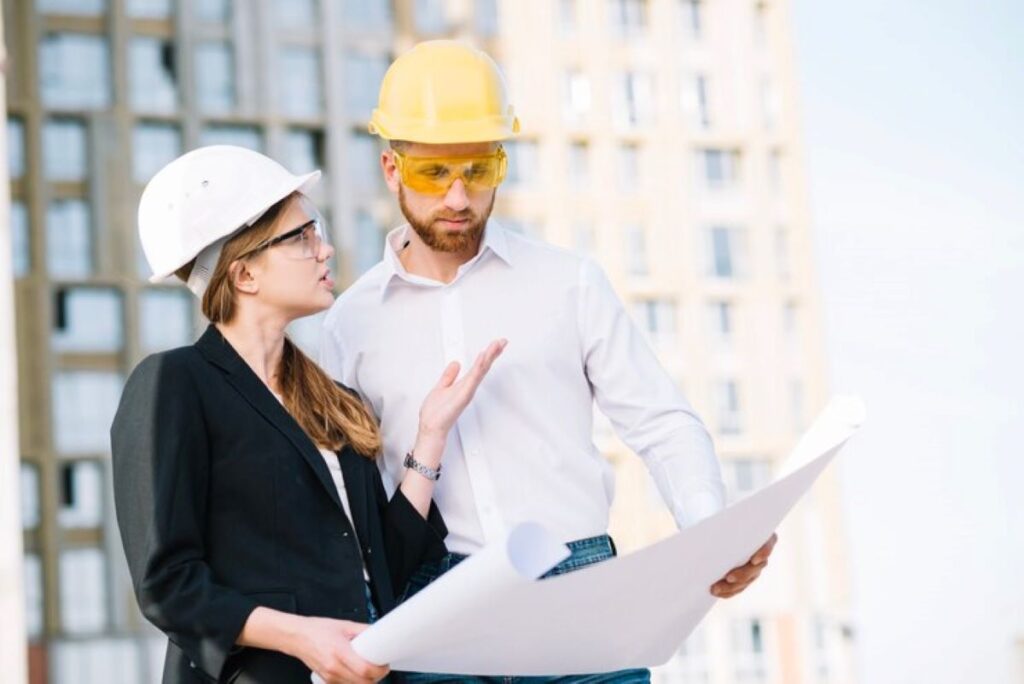Building and construction law encompasses a vast array of legal issues related to the construction process, construction contracts, and property ownership. For homeowners, understanding this area of law is essential not only to protect their investments but to ensure compliance with local regulations and standards. This guide aims to provide homeowners with a comprehensive overview and practical insights into building and construction law.
Understanding Building and Construction Law
Building and construction law is a specialized area of law that deals with all aspects of the construction process, including the drafting of contracts, compliance with regulations, and resolution of disputes. It often intersects with other legal fields, such as property law, environmental law, and commercial law.
In understanding building & construction law, homeowners should familiarize themselves with two primary branches: building law and construction law. Each of these branches has particular emphasis on different aspects of the construction process and legal frameworks governing them.
The Basics of Building Law
Building law primarily focuses on the regulations and standards that govern building construction. This includes government codes, safety regulations, and zoning laws that dictate how properties can be developed and used. Homeowners must adhere to these laws to avoid fines, legal disputes, or even the necessity to demolish structures that do not comply.
One crucial aspect of building law is the requirement for permits before construction begins. Obtaining the proper approvals ensures that the building process meets local standards and safety regulations. Homeowners should be diligent in securing all necessary permits, as failure to do so can lead to costly legal complications later on. Additionally, understanding the timeline for permit approval is essential, as delays in obtaining permits can push back project schedules and increase overall costs.
Moreover, building law also encompasses inspections that must be conducted at various stages of construction. These inspections are designed to ensure compliance with safety and building codes, and they play a vital role in protecting the interests of both the homeowner and the community. Homeowners should be prepared for these inspections and understand the criteria that inspectors will evaluate, as this knowledge can help facilitate a smoother construction process.
Key Aspects of Construction Law
Construction law encompasses broader legal considerations, primarily dealing with contracts between various parties involved in the construction process, such as contractors, subcontractors, suppliers, and property owners. This branch of law governs obligations, roles, and responsibilities of each party involved in the building project.
Another important aspect of construction law is the resolution of disputes that may arise among the parties. Common disputes can include issues related to delays, quality of workmanship, and payment disputes. Understanding how to navigate these issues is crucial for homeowners as they embark on their construction ventures. Homeowners should consider including dispute resolution clauses in their contracts, which may outline mediation or arbitration processes as alternatives to litigation, potentially saving time and resources.
Furthermore, construction law also addresses issues of liability and insurance. Homeowners must be aware of the types of insurance coverage that contractors should carry, such as general liability and workers’ compensation insurance. This protects homeowners from potential claims arising from accidents or damages that occur during the construction process. By ensuring that all parties involved are adequately insured, homeowners can mitigate risks and safeguard their investment in the project.
Importance of Building and Construction Law for Homeowners
For homeowners, navigating the complexities of building and construction law is vital for protecting their rights and ensuring a successful project. Several key aspects highlight the reasons why understanding these laws is essential.
Protecting Your Rights as a Homeowner
Building and construction law is designed to protect homeowners from dishonest contractors or suppliers who may breach contracts or deliver substandard work. Knowing your rights can empower you to stand up against unfair practices and seek resolution when necessary.
Homeowners have the right to expect that their contractors adhere to the terms of their agreements and meet industry standards. In the event of a dispute, understanding your rights can help you pursue proper legal channels to address grievances and protect your investment.
Moreover, homeowners should be aware of the specific warranties and guarantees that are often included in construction contracts. These protections can cover everything from structural integrity to the quality of materials used. Familiarizing yourself with these provisions not only helps in understanding what recourse you have in case of a breach but also aids in negotiating better terms with contractors. An informed homeowner is less likely to fall victim to common pitfalls that can arise during the construction process.
Ensuring Quality and Safety in Construction
Another critical reason for understanding building and construction law is to ensure that quality and safety standards are maintained throughout the project. This is crucial not only for the longevity of the construction but for the well-being of those who will occupy or use the building.
By being knowledgeable about applicable local building codes, homeowners can make informed decisions when hiring contractors and inspecting work. This diligence helps to prevent issues down the line that could result in costly repairs or safety hazards.
Additionally, understanding the legal implications of construction safety can also lead homeowners to advocate for safer work practices on their sites. For instance, knowing the requirements for scaffolding, electrical safety, and material handling can empower homeowners to ensure that their contractors are not only compliant with the law but also prioritizing the safety of their workers. This proactive approach can foster a culture of safety that benefits everyone involved in the project, ultimately leading to a more successful and harmonious construction experience.

Navigating Building and Construction Regulations
Regulations vary widely depending on the location and nature of construction projects. Homeowners must navigate a complex web of codes and requirements to ensure compliance and avoid potential legal issues. Understanding these regulations not only helps in adhering to the law but also contributes to the overall safety and livability of the constructed space.
Common Building Codes and Regulations
Building codes are established to ensure that construction complies with safety, health, and environmental standards. These codes dictate requirements such as structural integrity, fire safety, plumbing, and electrical systems. They are designed to protect both the occupants of a building and the general public from hazards that can arise from poorly constructed structures.
Homeowners should be aware of the specific codes applicable in their jurisdiction, as ignorance can lead to fines or even halting of the construction process. Consulting with local building officials or professionals can provide valuable information regarding required permits and adherence to building codes. Additionally, many municipalities offer resources or workshops that can help homeowners better understand the nuances of these regulations, making the construction process smoother and more efficient.
Understanding Zoning Laws
Zoning laws regulate land use and dictate what types of structures can be built in specific areas. These laws are established to maintain order in land development and ensure that construction aligns with community standards and land use plans. They can also influence property values and the overall character of neighborhoods, making it essential for homeowners to consider these regulations seriously.
Before commencing a construction project, it’s critical for homeowners to research zoning laws to confirm that their intended use is permitted. Failure to comply with zoning laws can result in significant financial setbacks or legal challenges later on. Furthermore, zoning regulations can vary not only by municipality but also by neighborhood, so a thorough investigation is necessary. Engaging with local planning boards or community organizations can provide insights into upcoming changes in zoning laws that may affect future construction plans, allowing homeowners to stay informed and proactive in their building endeavors. Learn more about choosing the right construction lawyer in sydney for your project.
Legal Issues in Building and Construction
Despite careful planning, homeowners may encounter various legal issues during their construction projects. Being informed about these problems can significantly aid in their resolution.
Contract Disputes and How to Avoid Them
Contract disputes are among the most common issues in construction projects, often arising from misunderstandings, incomplete agreements, or failure to meet deadlines. Homeowners should take proactive measures to avoid such disputes by ensuring contracts are clear and comprehensive.
Utilizing standardized contract templates can help prevent ambiguity, while thorough communication with contractors about expectations and deliverables is fundamental. When changes occur during the construction process, homeowners must document these changes and seek written acknowledgment from all parties involved.
Moreover, it is beneficial for homeowners to engage legal counsel familiar with construction law before signing contracts. This step can help identify potential pitfalls and ensure that all legal obligations are met. Additionally, establishing a clear timeline with milestones can help both parties stay accountable and reduce the likelihood of disputes arising from missed deadlines or miscommunication.
Dealing with Construction Defects
Construction defects can manifest in numerous ways, from structural problems to issues with materials used. Understanding how to handle construction defects is critical for homeowners to maintain their property value and ensure safety.
It is advisable to have regular inspections conducted throughout the construction process to identify any defects early. In the event defects are discovered post-completion, homeowners should know their rights regarding warranties and the obligation of contractors to remedy issues.
Furthermore, homeowners should familiarize themselves with the specific laws in their jurisdiction regarding construction defects, as these can vary widely. Some areas have statutes of limitations that dictate how long homeowners have to report defects, while others may have specific requirements for notifying contractors of issues. Keeping detailed records of all communications and inspections can also serve as invaluable evidence should a dispute arise over construction quality or defects.

Seeking Legal Help in Building and Construction Matters
Legal matters related to building and construction can be complex and daunting. Knowing when and how to seek legal assistance can make a significant difference in the outcome of issues encountered.
When to Consult a Construction Lawyer
Homeowners should consider consulting a construction lawyer before entering into contracts or when faced with any legal uncertainty. A qualified lawyer can provide guidance on contract terms, compliance with regulations, and dispute resolution strategies.
Additionally, if issues arise that cannot be resolved through direct negotiation with contractors, having legal representation can aid in pursuing necessary remedies effectively. Legal counsel is particularly important in issues of significant financial consequence or where liability may be at stake.
Choosing the Right Legal Professional for Your Needs
Selecting the right construction lawyer requires careful consideration. It’s essential to seek professionals with specific experience in building and construction law who understand local regulations and practices.
When choosing a lawyer, consider their reputation, prior case outcomes, and communication styles. A good lawyer will not only represent your interests but will also work collaboratively with you to help you understand your options.
In conclusion, understanding building and construction law is essential for homeowners to protect their rights, ensure compliance, and achieve successful outcomes in their construction endeavors. By being informed about relevant laws and seeking appropriate legal assistance when necessary, homeowners can navigate the complexities of the construction process with confidence.
